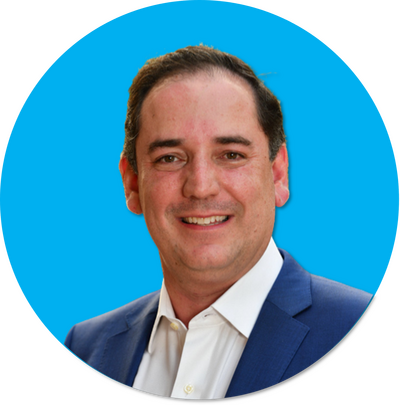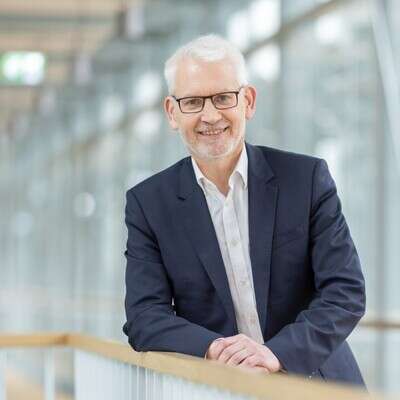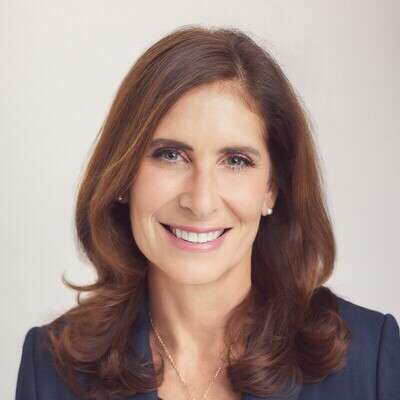Artículos y ensayos
Executive View with José Renato de Mello Goncalves, CEO, NEC Brazil
“I bring people into taking decisions with me so they feel part of the process; if it works it was their suggestion or decision, so we are winning together or losing together”

Today’s complex landscape demands adaptive, empathetic leaders, who accelerate decision-making to navigate opportunity and mitigate risk. In an exclusive series, Boyden's data-driven 2023 research on Exploring adaptivity through strategy and talent is complemented by in-depth interviews from trailblazers across the globe, sharing their perspectives on core issues across organisational strategy, leadership and talent.
This interview features José Renato de Mello Goncalves, CEO, NEC Brazil.
Discussion Highlights:
- Adaptivity is achieved through running the business in two timeframes, maintaining short-term results to support the long-term vision.
- Rigorous engagement with the C-suite, and challenging the CEO’s thinking, helps to accelerate change.
- Adaptivity means competing with new entrants, different competitor profiles and co-opetition with other companies.
- Differentiation is achieved through exceptional teams and a strong strategy to increase the level of service and value to customers.
- The evolution of smart cities is expanding the customer base from service providers to government, financial and enterprise organizations.
- Compliance and governance are top priorities for service delivery and guarantees, and also used for customer profitability.
- People retention is a global issue. NEC Brazil manages this through collective decision-making, special events and other activities to promote inclusion and commitment.
- NEC Brazil is transforming into a company where every person is a sales person, enhanced by sales-oriented events for employees, customers and industry participants.
- Key drivers for 2024 are the business portfolio, people, sustainability and governance.
- Diversity, equity & inclusion is a big part of NEC’s future in Brazil and important to the key drivers for 2024.
Boyden: In our annual executive survey, respondents in Latin America are always particularly confident compared to their global peers. Why is this?
José: Leaders in Latin America are always more positive. It’s an environment that requires you to be more creative due to economic and political challenges. There is also great diversity in the region and within countries; for example, Brazil can be very different depending on where you are. So, your mind needs to be open to different perspectives because you face different realities. We are already adaptive, so we are more confident.
• • •
Boyden: Is today’s disruptive environment shifting the relationship between subsidiary leaders and the global board?
José: When I joined NEC in 2022, the organization had a clear strategy and vision to provide a better quality of life, orchestrating a brighter world. So, for NEC Brazil, how can we create more digital solutions, and provide better services to people, better telecoms and a communications structure that meets increasing demand.
“Brazil can be very different… Your mind needs to be open to different perspectives because you face different realities. We are already adaptive, so we are more confident”
The main challenge is balancing the medium and long-term vision, with delivering short-term results. This is a key issue for all organizations, and no different at NEC. We are more and more aggressive in terms of our objectives, so we want to achieve the long-term vision sooner. Our advantage is that we have good short-term results, so NEC Corporation benefits from investing in Brazil and the region. This means we can always present a business case and receive support from the company. It’s very important to have investment and accelerate the change we need, to reach our long-term vision.
• • •
Boyden: How are you accelerating change?
José: The key element is people. We need C-level executives who we really trust, with the right thinking, not the same as me, but an understanding of our strategy, and who will question me. I am always exchanging ideas with the C-level team.
It is important to have good leaders who can drive day-to-day because we are in a complex, very competitive environment. We have new entrants, different competitors and co-opetition with other companies. That requires a very good management team that understands the need to maintain short-term results while developing new solutions for the future.
We want to change our business model a little to balance the short term with the longer term. For example, by investing in smart cities, NEC enables the government and financial institutions to provide digital solutions and technologies to their customers. That shifts the revenue profile, providing more profitable revenue, rather than one-off revenues, typical in our industry.
“By investing in smart cities, NEC enables the government and financial institutions to provide digital solutions and technologies to their customers”
It’s key to have colleagues you trust. Our structural change involves value add solutions in three areas: service providers to maintain short term results; enterprise, developing a B2B business; and government. We strive for more and more professional services to increase the level of services we provide, to connect more value to our clients and be more relevant than our competitors. We differentiate ourselves by building a strong team and strong strategy around the structure we are building, always relying on people.
Today there is major employee turnover worldwide; it’s difficult to keep people and motivate them. It’s the same in Brazil. I like to manage this by creating a team environment where everyone understands their importance to the business, whether they are in delivery or sales, they need to understand their responsibilities and how they contribute to the company. Ultimately, they are all sales people and need to think like sales people. I try to create a future focus for the team across the company – doing events, being transparent with challenges and the changes we are facing. People need to understand clearly the strategy so they can help.
There are pressures in delivering short term results, for example the shortage of semi-conductors in the market, so when we have delivery issues with equipment, we have to manage that by pushing the team, at the same time recognizing their needs and keeping them motivated. Again, it’s about balance in pressing for short-term, mid-term and long-term results. We need to understand that sometimes people are not performing; it’s not necessarily their fault and they need some help. It’s important to treat people carefully and manage day-to-day pressure versus long-term goals to keep people motivated.
“I bring [people] into taking decisions with me so they feel part of the process… if it works it was their suggestion or decision, so we are winning together or losing together”
Boyden: What are your governance priorities in Brazil?
José: Our top priority is compliance and we have zero tolerance in terms of governance. We have very strong processes here in several different areas; we provide guarantees and follow the rules strictly as a top priority. We also approach governance in terms of cost control and project profitability.
• • •
Boyden: How is the current environment affecting your people strategy?
José: A key part of our people strategy is retention. We don’t just focus on compensation, although this is really important, but it’s more about finding ways of keeping people committed to the company. I bring them into taking decisions with me so they feel part of the process; if it works it was their suggestion or decision, so we are winning together or losing together. That’s really important when we talk about people and management; people want to feel part of company decisions at all levels.
We also need to create a very good work environment. It’s important with hybrid work, and to maintain those high confidence levels, to go to the office two or three times a week, to talk, have coffee or lunch together. When you are alone at your house, productivity may be higher, but mentally we are not breathing the same air or experiencing the same environment, that’s why I create an environment that generates a team feeling.
I had people start and leave during the pandemic, because they did not ‘feel’ the environment. If people have difficulties, at the office they can be addressed, but not alone at home and that impacts people’s confidence. We need to inject good feelings through positive messages, and at least once a year celebrate with the team, so people feel they are in a successful company. This inspires them to do more. It’s not always about money or benefits, but how people feel as part of the company and the initiatives that I take to bring people together and encourage commitment.
• • •
Boyden: What are you most excited about for 2024?
José: Our portfolio, our people, sustainability and governance.
NEC has a great portfolio, with 5G and digital solutions for smart cities, bringing better functionality, mobility and security to people day-to-day in different areas. NEC is such an open-minded company that new ideas and new business models are supported. We are very good at service delivery, providing lots of capabilities to service providers through a strong team. Our very solid base and solid teams mean we know what a business needs to survive in short term while we transform it with new solutions, such as cybersecurity, for the longer term.
“We are a truly open and truly trusted company… An important part of this is diversity, equity & inclusion, which is a big part of our future”
For our people and teams, we are transforming into a company where everyone is a sales person, injecting more motivation. Of course, we need to balance savings and cost control with sales-oriented events for employees and customers, celebrating our successes and participating in trade fairs.
We have internal initiatives and actions around sustainability, also in partnership with our customers through solutions and services we provide to increase sustainability in their businesses.
I include governance and compliance, because we always need to have that in mind, following all the rules to guarantee we are working transparently in every way. We are a truly open and truly trusted company, which reflects the culture I have described. An important part of this is diversity, equity & inclusion, which is a big part of our future and important to all the areas I am excited about for next year.
Read Full Report
Boyden Global Executive Survey 2023: Exploring adaptivity through strategy and talent
- - -
Executive Biography
José Renato de Mello Goncalves is CEO of NEC Brazil. He is “passionate for technology, hard work and fun, but always people first”.
José has more than 20 years of experience in IT and telecommunications, combining technical experience with leadership and strong relationship skills, including business leadership and partner management.
NEC is one of the largest global providers of integrated solutions for Information and Communication Technology, present in Brazil since 1968.
A subsidiary of NEC Corporation, NEC Brazil is recognized as one of the most important organizations in telecommunications, due to pioneering new technologies to promote the development of the sector, and the reliability of its products and solutions.
This interview was enabled by Leonardo de Souza, Partner, Brazil.




